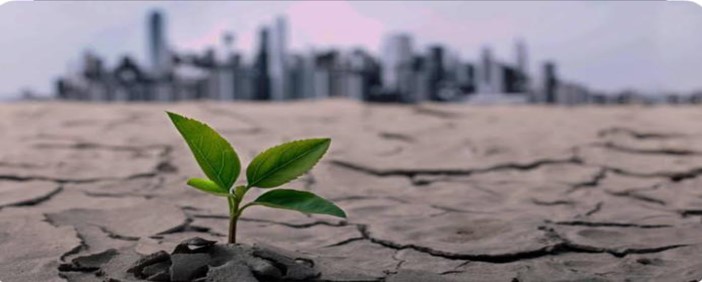
By Syeda Masooma Bukhari
Two hundred years ago, our planet experienced a vastly different climate, characterized by a remarkable purity that seems almost mythical today. Back then, the air we breathed was refreshingly clean, untainted by the pollutants that now saturate our atmosphere. It carried the essence of untouched wilderness, a fragrance imbued with the secrets of ancient forests and pristine landscapes. In this era, nature’s symphony echoed across the land, a harmonious melody celebrating all living things’ interconnectedness. From the majestic roar of the ocean to the gentle rustle of leaves in the wind, every sound contributed to a grand chorus of existence. Above, the sky stretched endlessly, a vast expanse of cerulean blue unmarred by the thick veils of pollution that now obscure our view. It was a sanctuary of tranquility, where clouds drifted lazily, unfettered by the heavy burden of smog.
Meanwhile, rivers flowed with crystal clarity, their waters shimmering like liquid diamonds as they wound through untouched landscapes. Their purity reflected the pristine environment surrounding them, a testament to the unspoiled beauty of the natural world. However, mankind, in a quest to enhance its lifestyle, began burning fossil fuels, deforesting vast areas, and engaging in intensive livestock farming. This shift in practices has led to the emission of greenhouse gases, primarily responsible for global warming and subsequently triggering climate change. The consequences of these actions have been devastating, as the once-clear rivers now run murky and polluted, unable to sustain the diverse ecosystems that once thrived within them. Additionally, the smog that was once limited to industrial areas has spread like a blanket over cities, causing respiratory problems and reducing visibility. The repercussions of these actions are profoundly disastrous. The adverse effects of climate change include Rising temperatures, intensified storms, and shifting weather patterns, which paint a picture of a planet in flux. Ice caps are receding, oceans are warming, and ecosystems are grappling with the consequences of this imbalance. The impact is felt globally, from more frequent and severe natural disasters to disruptions in agricultural patterns, challenging food security. Biodiversity faces unprecedented threats, with species struggling to adapt or facing extinction. Rising sea levels threaten coastal communities, amplifying the urgency for resilient strategies. The delicate web of climate interdependencies is strained as humans grapple with the consequences of our actions.
The question arises: How can we overcome this situation?
Addressing this urgent situation demands active engagement, and the youth are pivotal players. As a vital pillar of society, they wield immense strength and influence, potent forces propelling change. Through their tireless advocacy, championing sustainable practices, and fervently advocating for policy reforms, young individuals significantly shape the discourse and actions to combat climate change. Their enthusiasm for sustainability, evident in their embrace of eco-friendly initiatives and unwavering calls for policy shifts, marks a substantial contribution to mitigating the impacts of climate change. Their impassioned activism not only raises awareness but ignites a collective fervor for a more sustainable tomorrow.
“We have the power to change the climate narrative. It starts with acknowledging our impact.”
______________________
The author is a student of Media and Development Communication at University of the Punjab, Lahore

